A Culture of Giving
November 1, 2019:
Every life has equal value. Every creature deserves the chance to live a healthy and productive life. These principles have guided Sarah Podobinski for as long as she can remember.
“I don’t see anybody’s life being of lesser value than anyone else,” Podobinski said, the casualness in her voice a sharp contrast to her deliberate good deeds. “If you can help someone, I feel like you should.”
And so she does. Podobinski’s generosity knows no boundaries. Family. Friends. Strangers. Even animals. It’s all the same to her. Every life is precious.
So when she came across Demarcus Graham’s online Facebook post pleading for a kidney, Podobinski jumped at the chance to donate one of her own to the Columbia County deputy sheriff. She was screened in August 2018, and four months later she underwent surgery at Mayo Clinic in Jacksonville to save a man she never met.
“She’s truly an angel,” said Graham. A man of strong faith, he is keenly aware of the sacrifice made on his behalf.
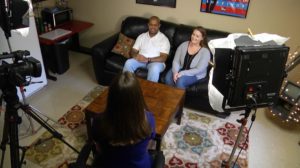
Podobinski and Graham share their story with a local TV station.
“It’s like it never happened,” Podobinski said.
She was released from the hospital the next day.
Prior to the transplant surgery, she had never been hospitalized or even suffered a broken a bone. All of which begs the question, why in the world did she do it?
“I get asked “why” constantly,” she said pensively. “My response is, why not?”
Podobinski is not being flippant. Having worked as a surgical coordinator, she witnessed first-hand the fear and misery of patients who were waiting for kidney transplants while on dialysis. She wanted to help. It’s that simple.
In doing so, she joined a select group of loved ones, friends and even individuals who donated their organs to spare a patient an uncertain future. In 2018, nearly 7,000 transplants were made possible by living donors.
Podobinski, however, is an outspoken advocate for the less fortunate. She participates in an informal online group that connects living donors with patients who need organ transplants. Group discussions are candid, and members are encouraged to publicly ask for the organs they need as Graham did.
“You’d be surprised how many random people want to do this sort of thing and donate,” she said, pointing out there is a large community of altruistic people out there just waiting to do good deeds.
All you have to do is ask.
“The altruistic brain works a little different,” said Podobinski, an avid blood donor and registered bone marrow donor. “I know it’s not normal for someone to up and give away their organ, not even to a family member.
“I’ve always been kind of a giving person.”
Her big-heartedness extends beyond the human race. She also runs a dog rescue, Rapscallion to the Rescue, that provides free spay and neutering for pets of families who are struggling financially. The shelter is home to 10 dogs who are paralyzed, amputees, or terminally ill.
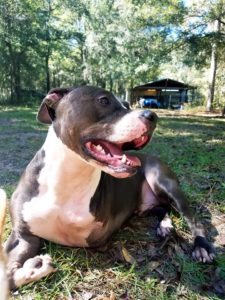
Manny takes it easy after donating blood at the UF Small Animal Hospital.
“We try to help the paycheck-to-paycheck people,” she said.
Her own five-year-old pit bulls also donate blood regularly at the University of Florida Small Animal Hospital. Victor and Manny are enrolled in the canine donor program. Just like people, dogs have diseases or injuries that require blood transfusions. Pit bulls have the necessary antigens in their blood to be canine donors.
Podobinski learned of the program from a friend who worked at the hospital.

Victor is enrolled in the canine donor program that provides blood transfusions for sick or injured dogs.
“It made total sense to me,” she said.
The way Graham sees it, Podobinski’s unbridled culture of giving is more than common sense. It was divine intervention. Without a kidney donation, he was destined to end up like his sister. She died while waiting for a heart transplant.
Today Graham is happy, healthy and shares the story of his miracle donor through testimony every chance he gets.
“I was meant to cross her path,” he said. “She may seem like a normal person to you, but in my eyes she wears a cape. She’s my hero.”
##
Share this story by visiting LifeQuest’s Facebook page: www.Facebook.com/LifeQuestFla.

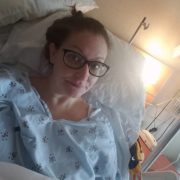
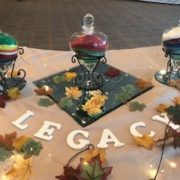
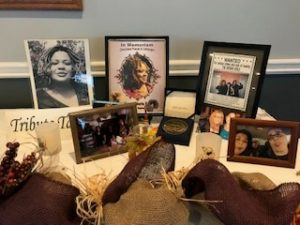
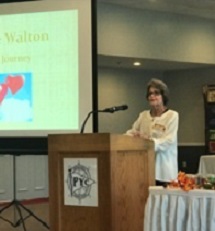
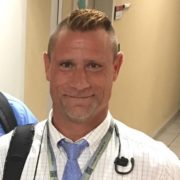
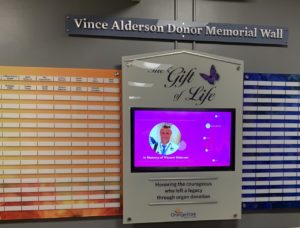
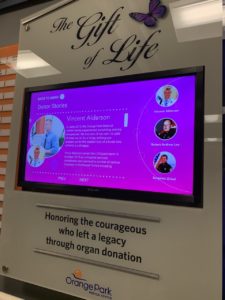
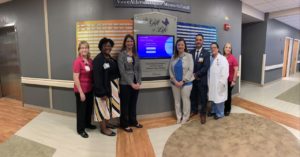
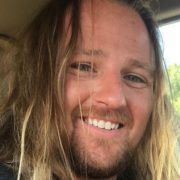
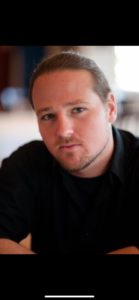 s and their families. She knows first-hand tributes like the Honor Walk can turn things around for donor families in their time of grief.
s and their families. She knows first-hand tributes like the Honor Walk can turn things around for donor families in their time of grief.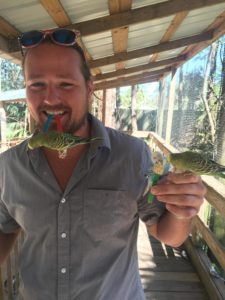 “Chuck was from this area,” said Adcock. “He was a young guy with a wonderful family. That probably made it a lot harder on all of us.”
“Chuck was from this area,” said Adcock. “He was a young guy with a wonderful family. That probably made it a lot harder on all of us.”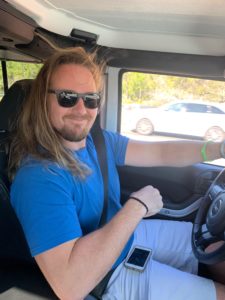
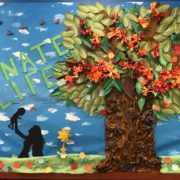

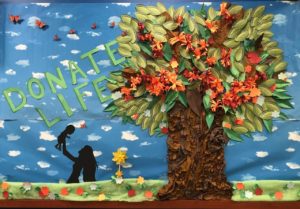
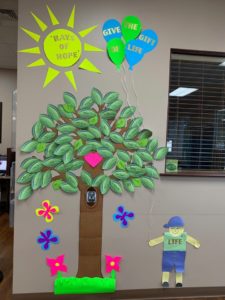
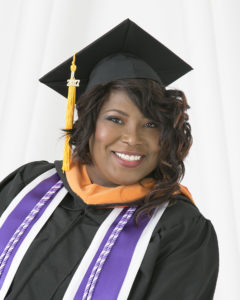

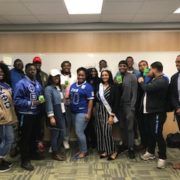
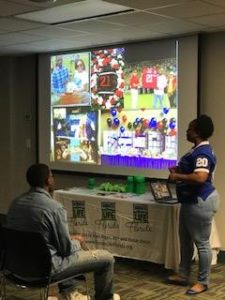

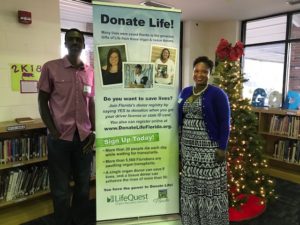
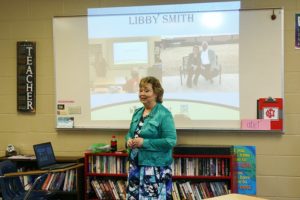
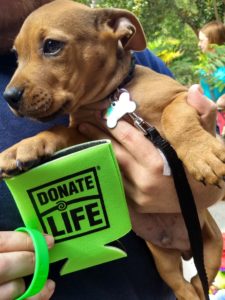
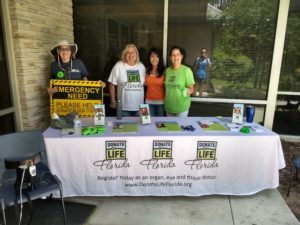 LifeQuest had 10 volunteers assist with the event, with four staffing the table at various times throughout the day. Newer volunteers were paired with more-experienced volunteers to encourage mentorship in addition to Donate Life community.
LifeQuest had 10 volunteers assist with the event, with four staffing the table at various times throughout the day. Newer volunteers were paired with more-experienced volunteers to encourage mentorship in addition to Donate Life community.
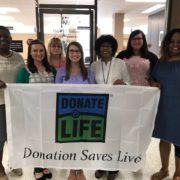
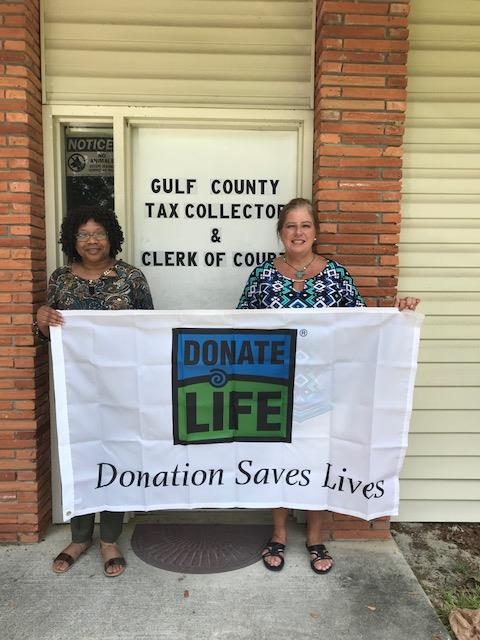
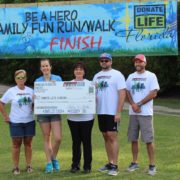
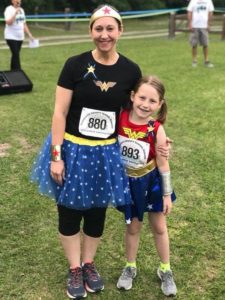
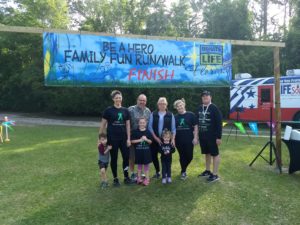
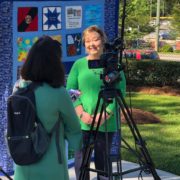
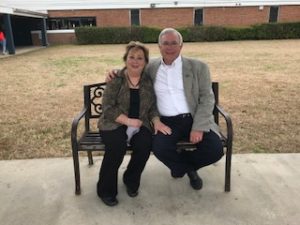
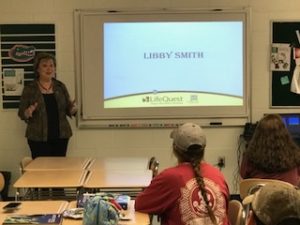 “I never thought this would happen to me,” she recently told students at Wakulla High School in Crawfordville, Florida, where she was invited back to share her story a second time.
“I never thought this would happen to me,” she recently told students at Wakulla High School in Crawfordville, Florida, where she was invited back to share her story a second time.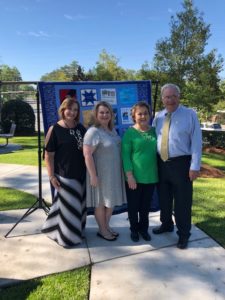

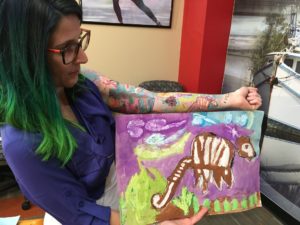 ucate the public about the importance of organ and tissue donation while sharing their testimony.
ucate the public about the importance of organ and tissue donation while sharing their testimony.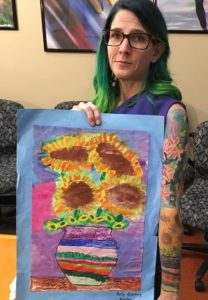
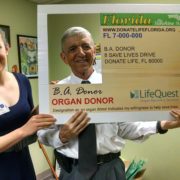
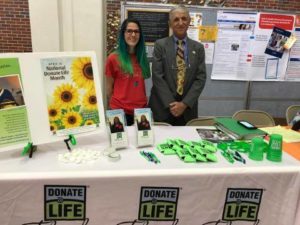
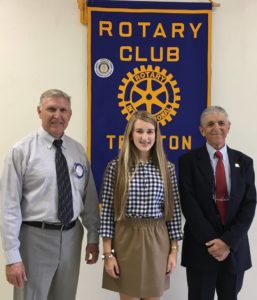 Cliff has volunteered more than 120 hours the past 2.5 years for LifeQuest, and he has traveled all over North Florida for the cause, including trips to Perry, Live Oak, Jacksonville, Starke, Ocala and Cross City. Cliff has shared his story with a range of audiences, including church congregations, high school classes, civic clubs, mother-daughter dinners and workplaces.
Cliff has volunteered more than 120 hours the past 2.5 years for LifeQuest, and he has traveled all over North Florida for the cause, including trips to Perry, Live Oak, Jacksonville, Starke, Ocala and Cross City. Cliff has shared his story with a range of audiences, including church congregations, high school classes, civic clubs, mother-daughter dinners and workplaces.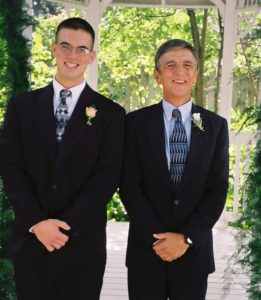

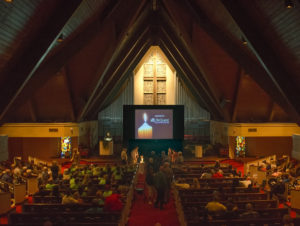 or Memorial Quilt panels before and after the ceremony.
or Memorial Quilt panels before and after the ceremony.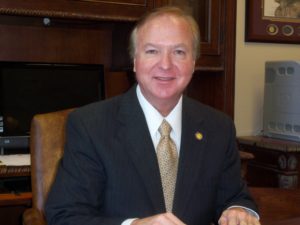
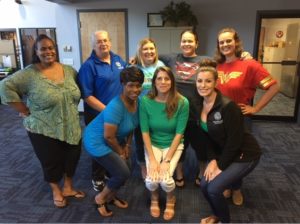
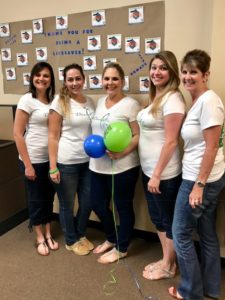
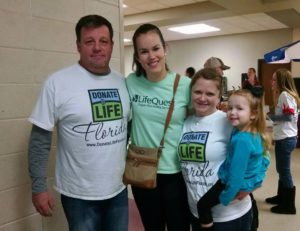 While one family celebrates receiving the Gift of Life, we cannot lose sight that another is mourning the loss of a loved one. As caregivers in the field of organ procurement, the staff at LifeQuest Organ Recovery Services, the organ donor program serving all of northern Florida, has a unique and special opportunity to provide comfort to donor families during one of the most traumatic events of their lives.
While one family celebrates receiving the Gift of Life, we cannot lose sight that another is mourning the loss of a loved one. As caregivers in the field of organ procurement, the staff at LifeQuest Organ Recovery Services, the organ donor program serving all of northern Florida, has a unique and special opportunity to provide comfort to donor families during one of the most traumatic events of their lives. In addition to providing ongoing aftercare and bereavement services to all of its families, often individual coordinators and family advocates form personal bonds with family members that blossom into genuine friendships.
In addition to providing ongoing aftercare and bereavement services to all of its families, often individual coordinators and family advocates form personal bonds with family members that blossom into genuine friendships. Public education coordinator Coral Denton has built numerous friendships with donor families who want to further our cause, and special memories from these relationships stand out. She has gone kayaking on Crystal River with Terry Rooks, the sister of donor Tim Rooks. She and donor father Clifford Gionet share a passion for traveling and send each other photos upon return from each new adventure. The four-year-old little sister of organ donor Peyton Evans made Coral a coral snake at school, which she hangs in her office.
Public education coordinator Coral Denton has built numerous friendships with donor families who want to further our cause, and special memories from these relationships stand out. She has gone kayaking on Crystal River with Terry Rooks, the sister of donor Tim Rooks. She and donor father Clifford Gionet share a passion for traveling and send each other photos upon return from each new adventure. The four-year-old little sister of organ donor Peyton Evans made Coral a coral snake at school, which she hangs in her office.



